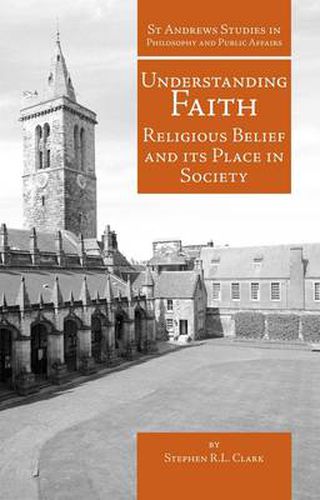Readings Newsletter
Become a Readings Member to make your shopping experience even easier.
Sign in or sign up for free!
You’re not far away from qualifying for FREE standard shipping within Australia
You’ve qualified for FREE standard shipping within Australia
The cart is loading…






This book, the author tells us, was conceived ‘in a fit of exasperation’ at the way militant atheists so often seem to mirror the worst kind of ignorance and hostility that traditional believers have felt for other creeds. Writing both as a philosopher and an Anglican Christian, Professor Clark begins by exploring further this initial perception. In later chapters he adds more detail to the analysis, considering such topics as the alleged openness of ‘scientists’ compared with the ‘dogmatism’ of ‘believers’; the difficulty of reading ‘scripture’ outside ‘the community of faith’ that has selected and elaborated it; the problems of moral realism (and the problem with abandoning it); why Darwinian and neo-Darwinian Theory has been unpopular with some believers, and what if anything can still be affirmed from it; what can be learnt from modern biology (especially) about our relations with other creatures; the nature of God; the metaphor of ‘waking up’ as applied to our hopes of heaven; the varieties of possible world orders founded on differing religious schemata (including some atheistical ones); and, the place of religion in the State. He concludes, appropriately, with some remarks about the End.
$9.00 standard shipping within Australia
FREE standard shipping within Australia for orders over $100.00
Express & International shipping calculated at checkout
This book, the author tells us, was conceived ‘in a fit of exasperation’ at the way militant atheists so often seem to mirror the worst kind of ignorance and hostility that traditional believers have felt for other creeds. Writing both as a philosopher and an Anglican Christian, Professor Clark begins by exploring further this initial perception. In later chapters he adds more detail to the analysis, considering such topics as the alleged openness of ‘scientists’ compared with the ‘dogmatism’ of ‘believers’; the difficulty of reading ‘scripture’ outside ‘the community of faith’ that has selected and elaborated it; the problems of moral realism (and the problem with abandoning it); why Darwinian and neo-Darwinian Theory has been unpopular with some believers, and what if anything can still be affirmed from it; what can be learnt from modern biology (especially) about our relations with other creatures; the nature of God; the metaphor of ‘waking up’ as applied to our hopes of heaven; the varieties of possible world orders founded on differing religious schemata (including some atheistical ones); and, the place of religion in the State. He concludes, appropriately, with some remarks about the End.